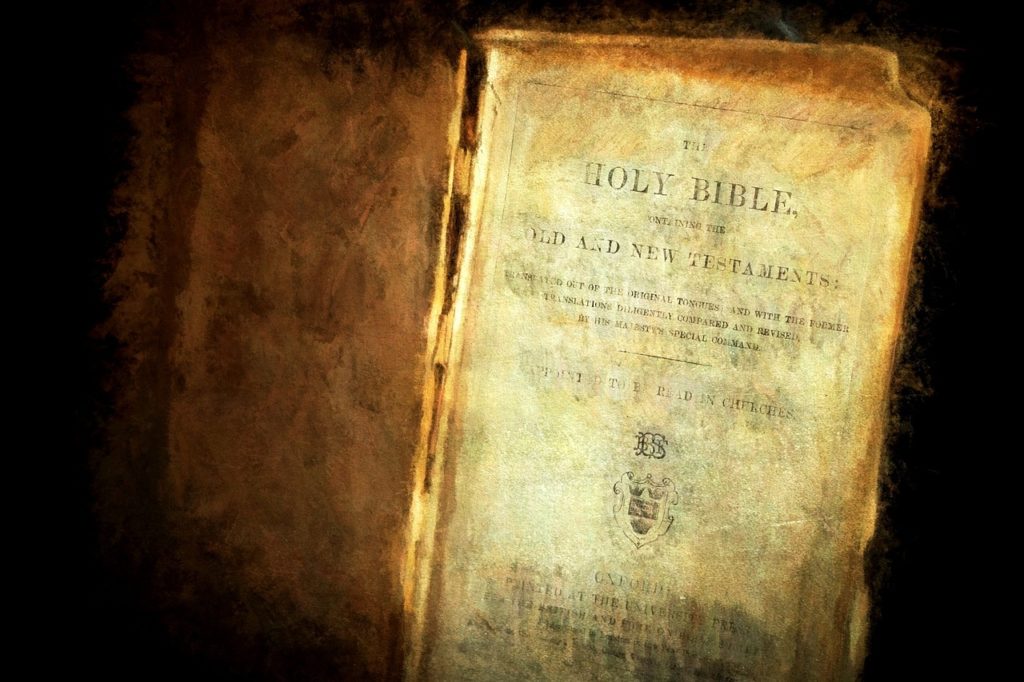
The Holy Bible has influenced the course of human history more than any other books or literature. It is a mysterious book upon which millions and millions of people have based their lives. The Guinness World Records as of 1995 stated that Holy Bible had been the best-selling book in the world of all time. A survey done by the Bible Society concluded that more recent estimates put the number of copies of the Bible printed were at more than 5 billion. It may be because; many Christians believe that Bible is truly the inspired, infallible, and the living Word of God.
Amidst all this great influence and popularity that the Bible has made today, there is one of the divisive issues in relation to it. That is the conflict about the meaning of the Bible, its origin, its authorship, its authority, and its interpretation. But, it is not fair and just to come to any conclusions and to criticize the origin of the Bible, its meaning, and its authority without having sufficient knowledge of the background and historicity of the Bible. This is where we need to respect and learn from those who have achieved significant amount of knowledge of the Bible through their serious exploration on Biblical studies.
Almost all the Catholic priests and some religious who come from most of the seminaries throughout the world have received at least the basic knowledge of the Bible in their theological studies for almost four years. In the seminary, which is affiliated to one the Roman Pontifical Seminaries, we had number of courses on Old Testament and New Testament all the five days of the week. As I roughly calculated, we had over 22 biblical courses for the eight semesters in the curriculum of four years Theology. And all those courses on the Holy Bible gave a basic, but sufficient historical, exegetical, and critical knowledge of it. Further, there is some other priests, religious, and even laity who go through further studies on Biblical Theology or Sacred Scriptures to the extent of receiving higher degrees, such as doctoral degrees in the field of Biblical studies.
What I want to say is in order to understand what God wants to reveal to us through Holy Scriptures is something so deep and ongoing. To criticize the Bible or to disregard its message with a limited knowledge is not fair and just to these Holy Scriptures that were divinely inspired. For the last few centuries, the origin of the Bible is grounded in the historical and theological scholarship. The Catholic Church and most of the Biblical scholars have made it clear that although the authors of the books of the Bible are human, they were divinely inspired.
No doubt that the Hebrews knew God before they had their own Hebrew Scriptures. The ancient Hebrews (Israelites) wrote the books of their Hebrew Scriptures as a record of their own experience of God. First, they encountered God in salvation history or in the events of their lives as one who saves. Second, they encountered God in nature or creation. Likewise, first century Christians recorded the documents of the New Testament based on their own experience of the Risen Jesus.
Behind all these personal experiences of the authors of the Holy Scriptures is the affirmation of the reality of God, His inspiring presence and the fulfillment of all what He revealed in Risen Jesus. But, it does not mean that the messages of the Scriptures tell us very clearly how those spiritual authors saw and experienced things. The Bible says very little about the way the words within it came to be spoken or written. Mostly, the human authors try to relate how God sees things.
The Church believes that the Bible was written under the inspiration of the Holy Spirit. This does not mean that the Bible is free of mistakes. There can be insufficient understanding of geography, history, science, and so on (The Modern Catholic Encyclopedia). Although we find in the Bible certain insufficiency in expression due to limited scientific and historical understanding and insufficient expressions in human languages, God’s divine inspiration on the writings of these human authors can be found. In the Dogmatic Constitution on Divine Revelation (Dei Verbum) of Second Vatican Council, the Church teaches that Holy Scriptures arose from a combination of human and divine co-operation (Dei Verbum 11). This is why we define the whole Bible is divinely inspired under the inspiration of the Holy Spirit. Divinely inspired in the sense, it assures us that the Word of God is truthful in those matters that prolong the revelation of God, which is necessary for our salvation.
— Fr. Niranjan Rodrigo, Ph.D.

You must be logged in to post a comment.